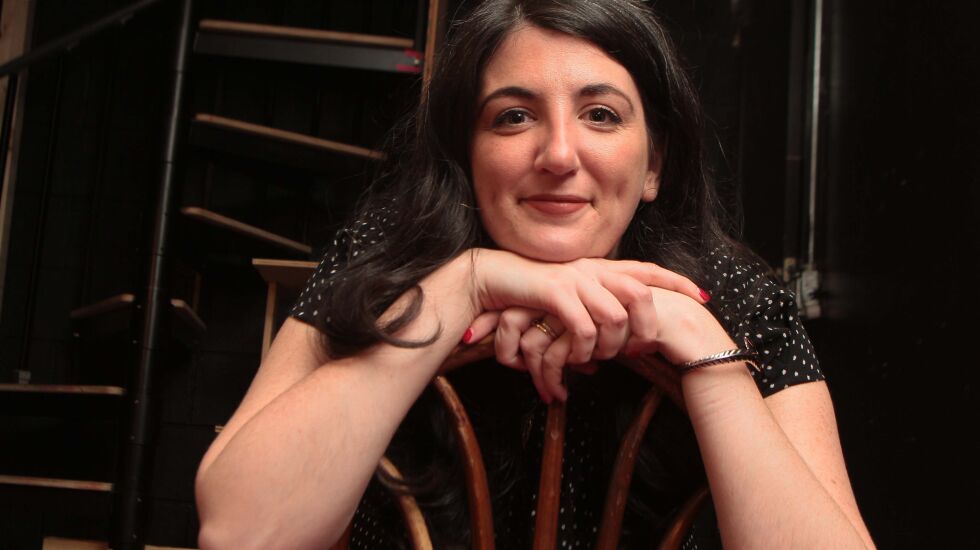
Ricardo Gamboa has spent their life trying to tell stories not often portrayed on screen or on the stage. Becoming a screenwriter four years ago was the first time they were able to make a sustainable living doing that.
Since becoming a screenwriter and joining the Writers Guild of America in 2019, Gamboa, 42, has had many opportunities, like writing for three seasons of “The Chi,” a Showtime drama set in Chicago.
When the WGA strike began on May 1, Gamboa said it was “jarring and disorienting,” and while they’re glad the end is now in sight, they said writers need to keep the collective action spirit in mind as they return to work.
“The strike has a really important story to tell that extends beyond just the writers strike,” Gamboa said. “We should take in the significance of the story the strike tells, and that’s the story of billionaire and corporate greed that attempted to starve writers and really the entire industry.”

Leaders of the WGA and Hollywood studios reached a tentative agreement Sunday to bring an end to the historic, months-long strike, though details of the deal have yet to be shared.
Katie Rich, a member of both the WGA and the Screen Actors Guild, which has been on strike since July 14, emphasized that the fight for labor rights is far from over, but she hopes others find inspiration in WGA’s success.
“What I hope is that this shows people that solidarity works, and that there is more of us than the people in charge could ever even comprehend,” said Rich, who has worked as a writer on “Saturday Night Live” and “Chicago Party Aunt.”
Rich, who splits time between Los Angeles and Chicago, added that while she is proud of how strong and unified the union was for so long, the strike’s effects won’t go away overnight.
“Even if the contract is ratified and we’re able to go back to work, that doesn’t mean that people aren’t still suffering,” Rich said. “This was almost six months of people being out of work.”
While many WGA members are based out of New York and LA, about 150, including Gamboa, live in the Chicago area, according to WGA member and strike captain Brett Neveu.
Neveu, 53, had a few projects put on hold when the strike began, and while he’s been able to focus on theater and his teaching position at Northwestern University, he said he’s relieved and “elated” that it’s coming to an end.
“The existential crisis of it has all been very real,” Neveu said. “The fair wages, and the money and everything like that, and the contract stuff has been real, too. But the feeling of respect and worth was the thing that loomed large.”
Neveu, who lives in Lindenhurst, had his 2002 play “Eric Larue” adapted into a film released this year and has been writing since he was 17 years old. He recalled picketing last time the WGA went on strike in 2007-08.

This time around, he said, there were a lot more people picketing, and there’s been an increase in diversity across demographics.
“One thing that’s different too, is that we went on strike, and a lot of people who went on strike were very used to being out of work,” Neveu said. “We had a lot of really eager members who were like, ‘Yeah I’ll be on the line every day. That’s no problem.’ And that helped a lot.”
Rich said she missed being able to do what she loved while on strike, but she tapped into her creativity to find new ways to use her talents.
“You are dealing with people who are in a profession where all we know is how to survive,” Rich said. “If there’s anybody who knows how to cobble together a living it’s us. I’m not saying it’s easy and I’m not taking away from what people have had to go through, but we know how to make it work.”
“The thing that kept a lot of us going, and myself personally, was that it felt bigger than us, that something else is going on here when it comes to labor and workers rights,” Rich said. “When you feel like you’re part of something bigger, I think it makes it a lot easier to commit to what’s right.”
Although Rich was not a member of WGA during its last strike, she was a member of SAG, and she said this time the strike felt different.
“This was not just fighting for a fair contract, this was fighting for our profession to continue to exist,” she said.
The agreement will still have to be approved by the union’s members, but the writers are already looking forward to getting back to work.
“During the strike, it’s pencils down, and telling a writer not to write is like telling a fish not to swim,” Gamboa said. “So yeah, I can’t wait.”






